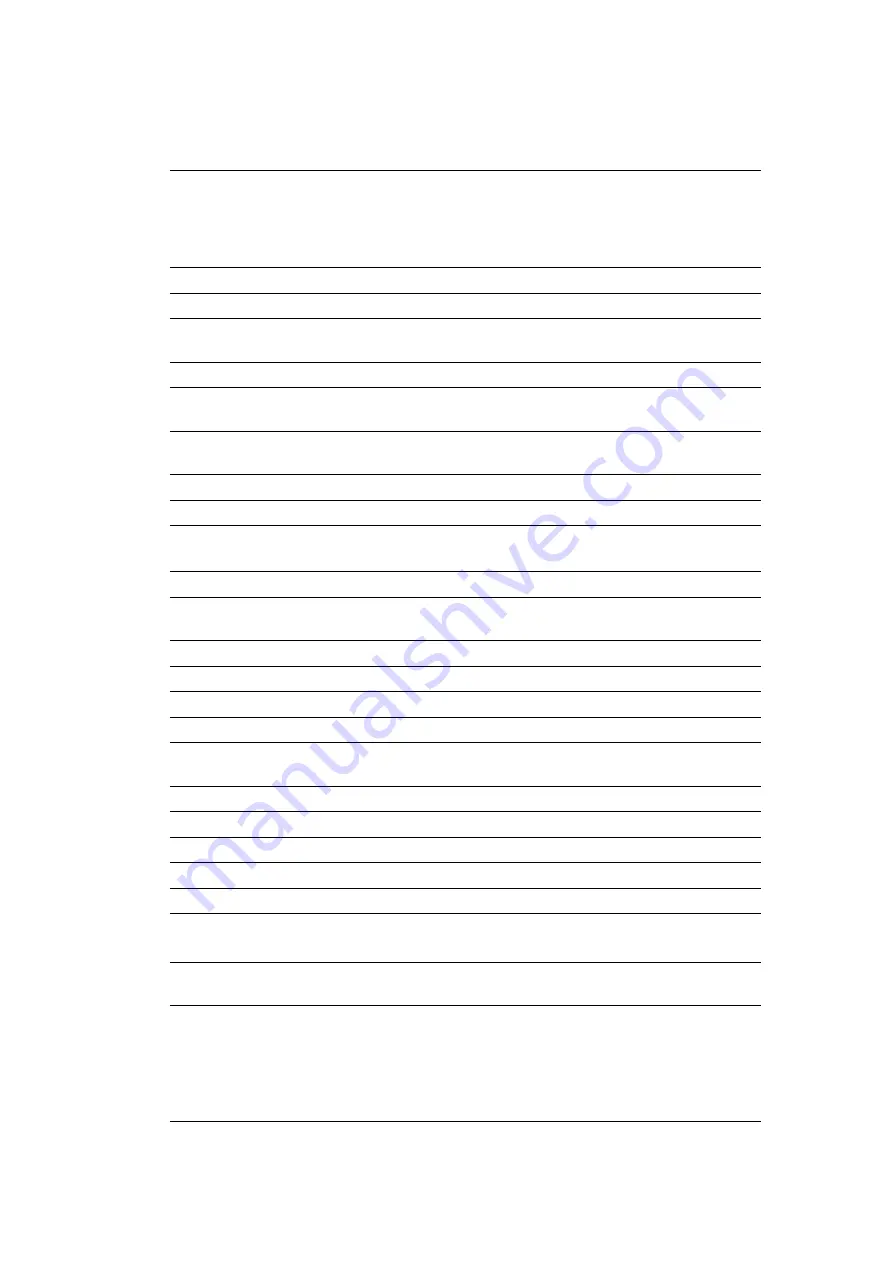
Effects
64
2-3-15 R
2-3-16 S
Pedal Control
When VCM Pedal Wah is selected, this parameter determines the Cutoff
Frequency of the wah filter.
For best results, assign this parameter to the Foot Controller in the
Controller Set display, then use the Foot Controller to control this
parameter.
Pedal Response
Determines how the sound responds to changes in the damper control.
Phase Shift Offset
Determines the offset value of the phase modulation.
Pitch 1, 2
Determines the pitch in semitones for each of the first series and second
series.
PM Depth
Determines the depth of the pitch modulation.
Pre Mod HPF Cutoff
Frequency
Determines the Cutoff Frequency of the High-Pass Filter before the
modulation.
Pre-LPF Cutoff
Frequency
Determines the Cutoff Frequency of the Low-Pass Filter before the
modulation.
Pre-LPF Resonance
Determines the Resonance of the Low-Pass Filter for the input sound.
Presence
This parameter of the Guitar Amp effect controls high frequencies.
Ratio
Determines the ratio of the compressor.
Release
Determines the amount of time that elapses between the releasing of a key
and the end of the compressor effect.
Release Curve
Determines the release curve of the envelope follower.
Release Time
Determines the release time of the envelope follower.
Resonance
Determines the Resonance of the filter.
Resonance Offset
Determines the Resonance as offset.
Reverb Delay
Determines the delay time from the early reflections until the
reverberations.
Reverb Time
Determines the Reverb time.
Room Size
Determines the size of the room in which the instrument sounds.
Rotor Speed Fast
Determines the speed of the rotor when the slow/fast switch is set to Fast.
Rotor Speed Slow
Determines the speed of the rotor when the slow/fast switch is set to Slow.
Rotor/Horn Balance
Determines the volume balance of the horn and rotor.
Sampling Freq.
Control
Controls the sampling frequency.
Sensitivity
Determines a specific value, depending on the selected Effect type.
For Dynamic Flanger, Dynamic Phaser, and the Tech effects, this
parameter determines the sensitivity of the modulation applied to the input
change.
For VCM Touch Wah effects, this parameter determines the sensitivity of
the wah filter's change applied to the input change.







































